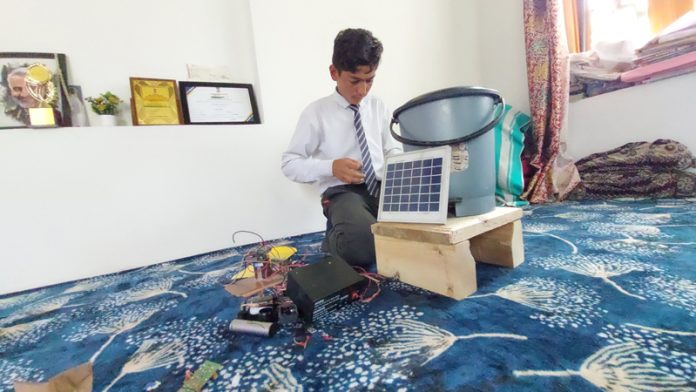
Across Southeast Asia -- from Manila to Bangkok to Phnom Penh -- police are struggling to keep children safe from sexual exploitation and abuse, in particular online. Every day, millions of images and videos of children are shared on the internet, while authorities are increasingly at a loss for what to do. Behind these numbers are real girls and boys whose lives may never be the same again.
Governments and law enforcement in Association of Southeast Asian Nations (Asean) countries both can and must do more to stem this tide of abuse. Child sexual exploitation is rising alarmingly in the region -- we need urgent action now. A meeting in Bali, Indonesia, this week presents an opportunity to do just that.

On Sept 25–27, representatives from government, law enforcement, the private sector and others will gather for the third annual Asean-ICT Forum on Child Online Protection. Discussions must focus on new strategies to counter the exponential increase in online child sexual exploitation and abuse (OCSEA) in Southeast Asia, and in particular on the role of law enforcement. Police and other authorities should reaffirm their commitment to work more closely with NGOs, tech companies and community groups to build a united front against child sexual exploitation.
The summit in Bali comes on the back of some encouraging initiatives in the region. In 2019, for example, Asean member states adopted the Declaration on the Protection of Children from All Forms of Online Exploitation and Abuse. While we have seen some positive developments since, there is still much more that can be done.
OCSEA is a particular issue in Asia, a region that is home to the highest rate of child internet users in the world. A major piece of research, co-led by Ecpat, Unicef and Interpol with support from SafeOnline, in 2022 revealed the alarming scope of the problem. In the Philippines, 20% of children aged 12–17 said they had experienced sexual abuse online.
The number stood at 11% in Cambodia, 9% in Thailand, 4% in Malaysia, 2.2% in Indonesia and 0.7% in Vietnam.
Perpetrators are using the internet not just to share sexually explicit images of children, but also to target them for abuse and exploitation. More than half of all child victims said they had first been approached online, mainly through social media or online gaming platforms. Too often, online abuse often translates into real life, as perpetrators try to get children to meet up in person.
Despite the scale of the problem, law enforcement is struggling to keep up. They lack the tools and resources to take on criminals in the digital sphere, including dedicated units and robust reporting systems. Officers also rarely receive specialised training on preventing and responding to child sexual abuse -- this needs to be institutionalised from the academy level.
There are encouraging initiatives in the region that law enforcement can build on. In Indonesia, for example, officers are embedded with communities to raise awareness about crime prevention, while in the Philippines police use social media channels for the same purpose. But there is much more to be done.
Countering OCSEA, however, is not just about money and resources for policing -- it is about building trust with communities, and ensuring that children feel safe enough to approach authority figures without fear of being judged. A huge part of this is about changing mindsets and challenging harmful, cultural taboos. We have interviewed child victims and survivors across Southeast Asia who say they are reluctant to approach police or other authorities to report crimes, since they are worried about being blamed.
More than one-third of child victims/survivors said such fears meant they had not disclosed crimes at all to anyone. As a result, we see children feeling ashamed about what happened to them. One girl survivor said: "When I told [the police] my problem, they were blaming me, asking me why I would do such a thing and why I behaved like that".
All survivors of OCSEA are victims. They have the right to access support and justice and should not be retraumatised or made to feel like criminals. Law enforcement and judicial officers must treat all children who approach them with respect, and always avoid putting the blame on victims We must also remember that OCSEA can affect any child and does not discriminate across age, gender or socio-economic lines.
In fact, our research shows that both boys and girls are equally targeted, and that there are as many victims in rural as in urban areas. It also demonstrates that the vast majority of offenders of sexual crimes online come from the circles of trust around children, rather than strangers on the dark web. Asean governments must adopt their strategies to these facts, and ensure that services are sensitive to the rights of all victims.
Localised, community approaches must be available to engage children and their families. We also encourage all Asean member states to establish OCSEA units and train and equip specialised officers with the technology, skills and resources to tackle the breadth of the problem and ensure children receive justice and support even including in rural areas. Member States must work together to pool resources, share practices, and coordinate cross-border investigations to make these units more effective.
This week's summit in Bali is a crucial opportunity for Asean leaders to better protect children online; it is one they must take. Guillaume Landry is Executive Director of Ecpat International, a global network of civil society organisations that works to end the sexual exploitation of children..














